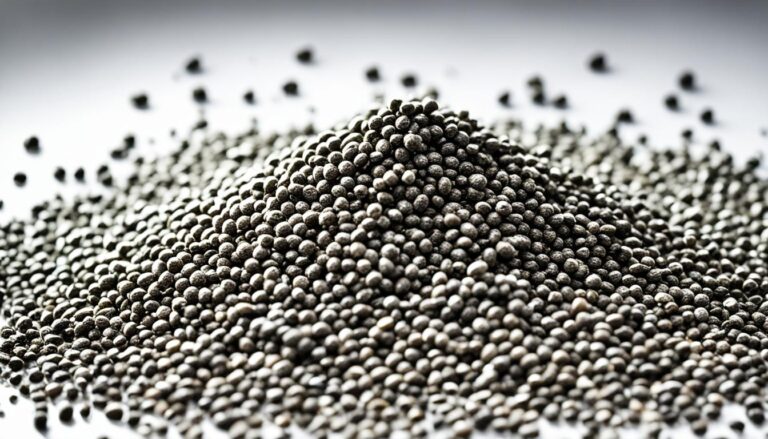The Atlantic and Mediterranean diets are two emerging favorites that deliver more than simply a thinner waistline. How about we jump right in and find out which one may be suitable for you?
The Atlantic diet emphasizes fresh seafood, whole grains, and plenty of fruits and vegetables, while the Mediterranean diet focuses on olive oil, nuts, and lean proteins like fish and poultry.
Have you ever been overwhelmed by the apparently unlimited diet options on the internet? All of us have been there. But what if nature’s most magnificent coastlines could serve as inspiration for a scientifically sound, tasty, and nutritious eating style?

Both diets have been linked to numerous health benefits, including a reduced risk of heart disease and improved cognitive function.
So, whether you prefer the flavors of the sea or the warmth of the Mediterranean sun, incorporating elements of these diets into your own eating habits could be a delicious and nutritious choice. Why not give it a try and see which one works best for you?
Similarities: Atlantic Diet/Mediterranean Diet
Picture sun-kissed markets bursting to the seams with vivid vegetables, gleaming fish, and juicy olives. This reliance on seasonal, locally obtained foods is typical of both Mediterranean and Atlantic diets. They are fervent proponents of heart- and brain-healthy fats, such as almonds, olive oil, and fatty salmon.
Consuming small quantities of lean protein will keep you full for longer, and healthy grains will offer you energy that lasts. Their diets are also rich in fruits, which provide essential vitamins and antioxidants.
In addition, Mediterranean and Atlantic diets emphasize the importance of enjoying meals slowly and savoring each bite. By following these dietary principles, you can not only improve your physical health but also cultivate a deeper appreciation for the culinary traditions of these regions.
Atlantic Advantage: Omega-3 Powerhouse
Living true to its name, the Atlantic Diet places a premium on seafood. Fatty fish like salmon, mackerel, and sardines are a goldmine of omega-3 fatty acids.
These critical nutrients have been linked to lowered inflammation, enhanced cognitive function, and a lower risk of heart disease. In addition to fish, the Atlantic Diet also emphasizes the consumption of fruits, vegetables, whole grains, and olive oil.
Red wine is consumed in moderation, and nuts are also a key component of this heart-healthy eating plan. Overall, the Atlantic Diet is not just a way of eating, but a lifestyle that promotes overall well-being and longevity.
Mediterranean Edge: Plant-Based Power
The Mediterranean diet leans more toward a plant-based approach. Think colorful greens, legumes like lentils and beans, and fruits filled with antioxidants. This concentrate on fiber keeps you feeling full and your stomach happy, maybe assisting in weight management and sickness prevention.
Moreover, the Mediterranean diet also emphasizes the consumption of healthy fats like olive oil, nuts, and fatty fish, which are beneficial for heart health. By incorporating a variety of nutrient-dense foods, this diet can help improve overall well-being and reduce the risk of chronic diseases.
Overall, the Mediterranean diet promotes a balanced and sustainable way of eating that can lead to long-term health benefits.
The Verdict: It’s All About You!
Choosing between these two diets hinges on your individual preferences and health goals. Do you prefer a wider range of seafood and like occasional red meat? The Atlantic Diet might be your fit.
If you prefer a plant-forward approach and adore the cultural components of the Mediterranean, that diet may be your champion. Whatever diet you choose, it’s important to listen to your body and make sure you are meeting your nutritional needs.

Consulting with a healthcare professional or dietitian can help you determine which diet is best for you based on your health and wellness goals. Ultimately, the most important thing is finding a diet that you can sustain and enjoy in the long term.
Three-Line Summary:
Atlantic Diet: Omega-3 rich fish takes center stage, alongside fresh produce and healthy fats. Mediterranean Diet: Plant-based power reigns, with legumes, fruits, vegetables, and olive oil leading the pack. The best diet?
The one that suits your taste buds and health goals! While both the Atlantic and Mediterranean diets offer a plethora of health benefits, ultimately, it is important to choose a diet that you enjoy and can stick to long-term.
Whether you prefer the savory flavors of seafood or the vibrant colors of a plant-based diet, the key is to find a balance that works for you. Remember, the best diet is one that nourishes both your body and your soul.
This content is for informative purposes only and does not substitute for professional medical advice.
Further Exploration:
Got questions? Check out our FAQ section below to discover more about these unusual eating behaviors!
FAQ: Battle of the Beaches: Atlantic Diet vs. Mediterranean Diet
Q: Are there any downsides to either diet?
Both diets are normally well-balanced and safe for most healthy people. However, the Atlantic Diet’s higher red meat intake might be a risk for some, especially those with a family history of heart disease.
The Mediterranean Diet might be slightly lower in protein consumption compared to the Atlantic Diet. Overall, both diets offer a variety of health benefits due to their emphasis on whole foods, fruits, vegetables, and healthy fats.
It is important for individuals to consider their own health needs and make adjustments accordingly when choosing between the two diets. Consulting with a healthcare provider or nutritionist can help determine which diet is best suited for each individual’s unique health profile.
Q: Can I merge the features of both diets?
Absolutely! You may develop your own specific healthy eating pattern by incorporating the finest components of both.
Enjoy the bounty of seafood from the Atlantic diet with the plant-based focus of the Mediterranean. Remember, moderation is key! By combining these two dietary approaches, you can create a well-rounded and balanced way of eating that nourishes your body and promotes overall health.
Don’t be afraid to experiment with different recipes and ingredients to find what works best for you. Just remember to listen to your body and practice moderation in all things. Your health and well-being will thank you for it!
Q: How can I get started with either diet?

Talk to your doctor or a trained nutritionist to investigate which strategy may be best for you. They can help you develop a personalized plan that meets your health needs and preferences.
Explore cookbooks and online resources dedicated to these diets. You’ll uncover a number of delectable meals to begin your journey! Whether you’re interested in trying a plant-based diet, keto diet, or intermittent fasting, there are plenty of resources available to guide you along the way.
Experiment with different recipes and meal plans to find what works best for your body and lifestyle. Remember, it’s important to listen to your body and make adjustments as needed. Embrace this new chapter in your health journey and enjoy the delicious and nutritious meals that await you!
Remember: Consistency is essential! Small, steady improvements are more beneficial in the long run than abrupt calorie limits.
Bonus Tip:Embrace the social components of food! Share meals with loved ones and understand the cultural customs related to both the Atlantic and Mediterranean regions.
Food is designed to be relished, after all! By sharing meals with loved ones, you not only create lasting memories but also deepen your connections with those around you.
Understanding the cultural customs related to food in both the Atlantic and Mediterranean regions can enrich your dining experience and open your eyes to new flavors and traditions.
So, next time you sit down to enjoy a meal, savor each bite and appreciate the social and cultural significance of the food you are eating. After all, good food is meant to be enjoyed in good company.






